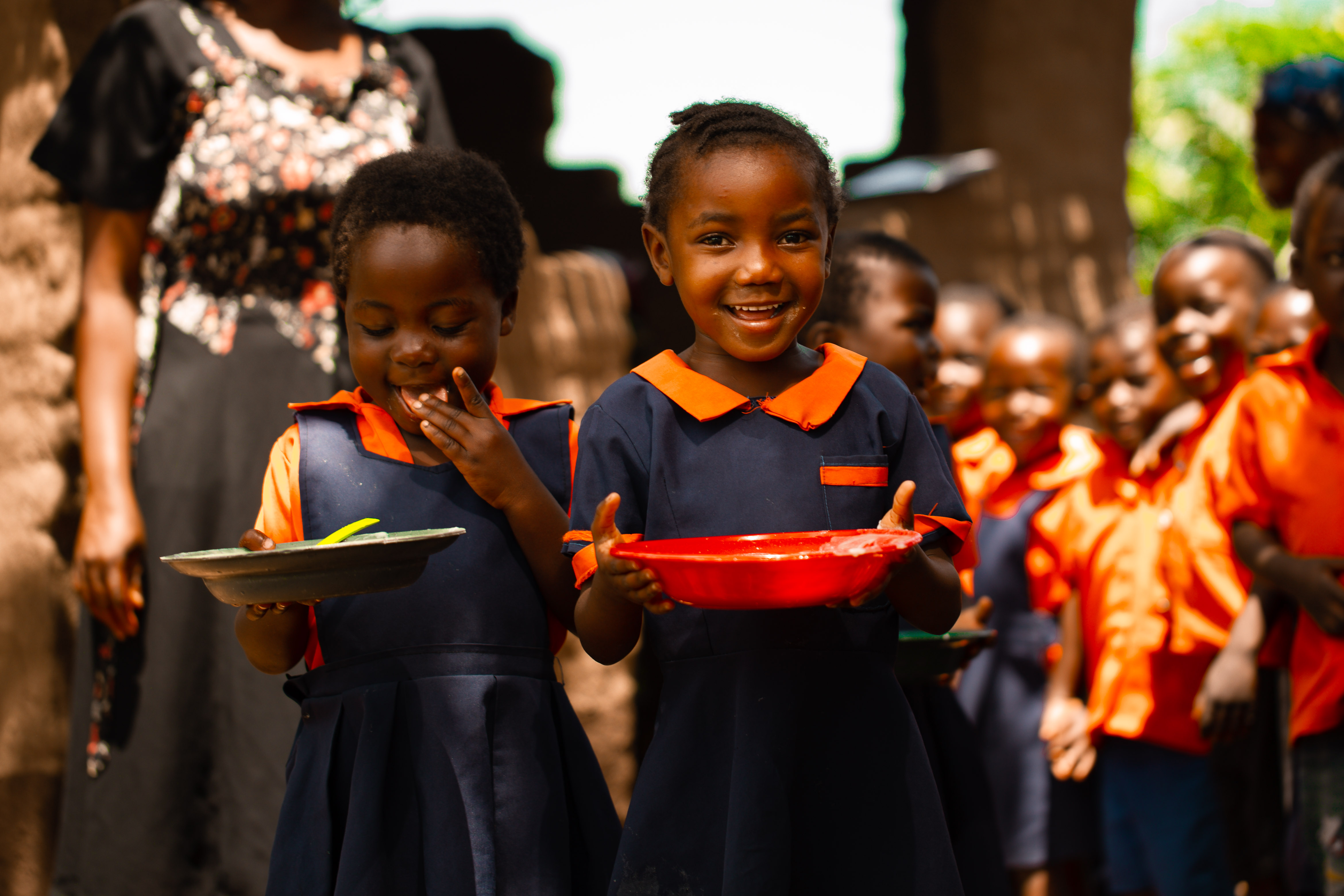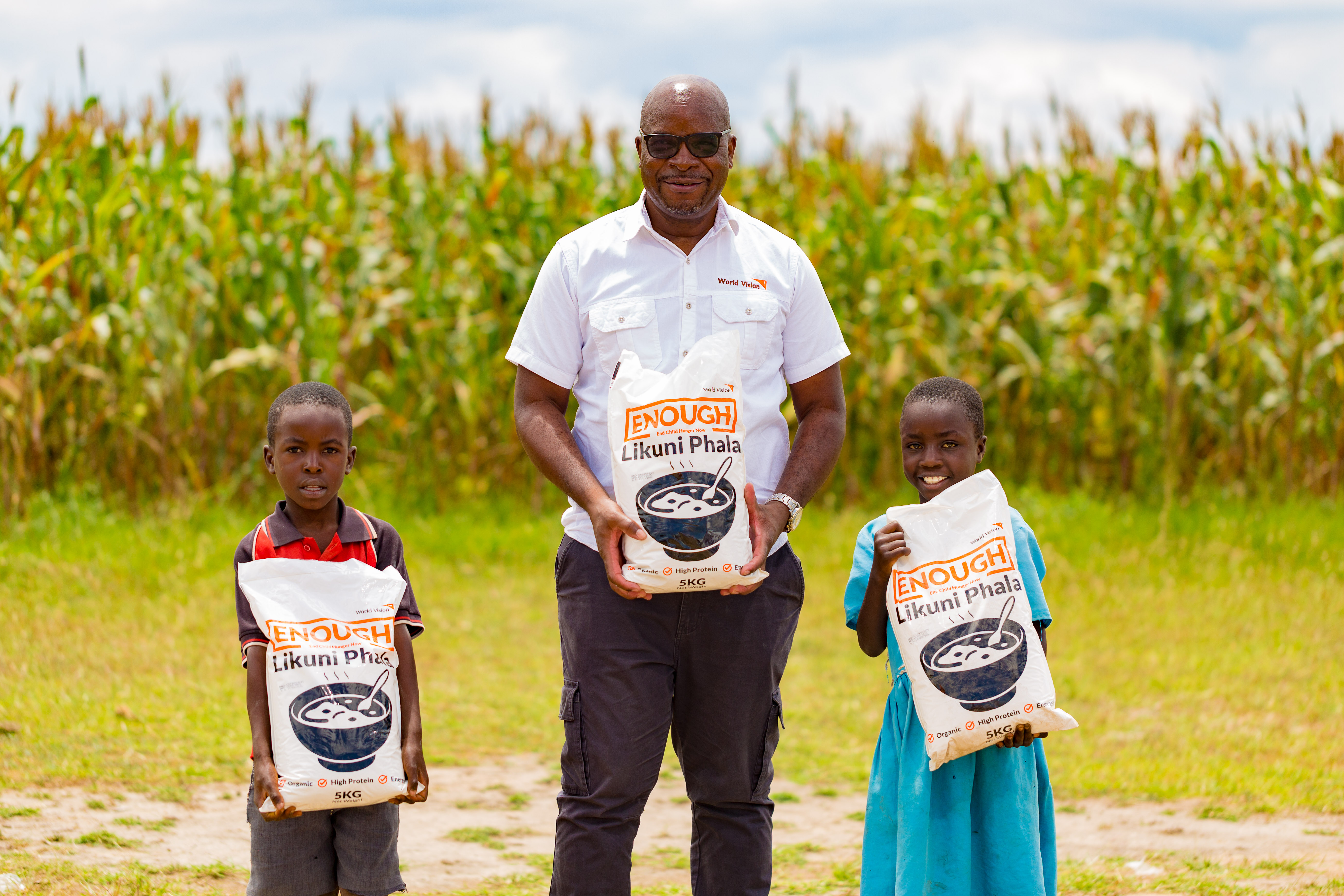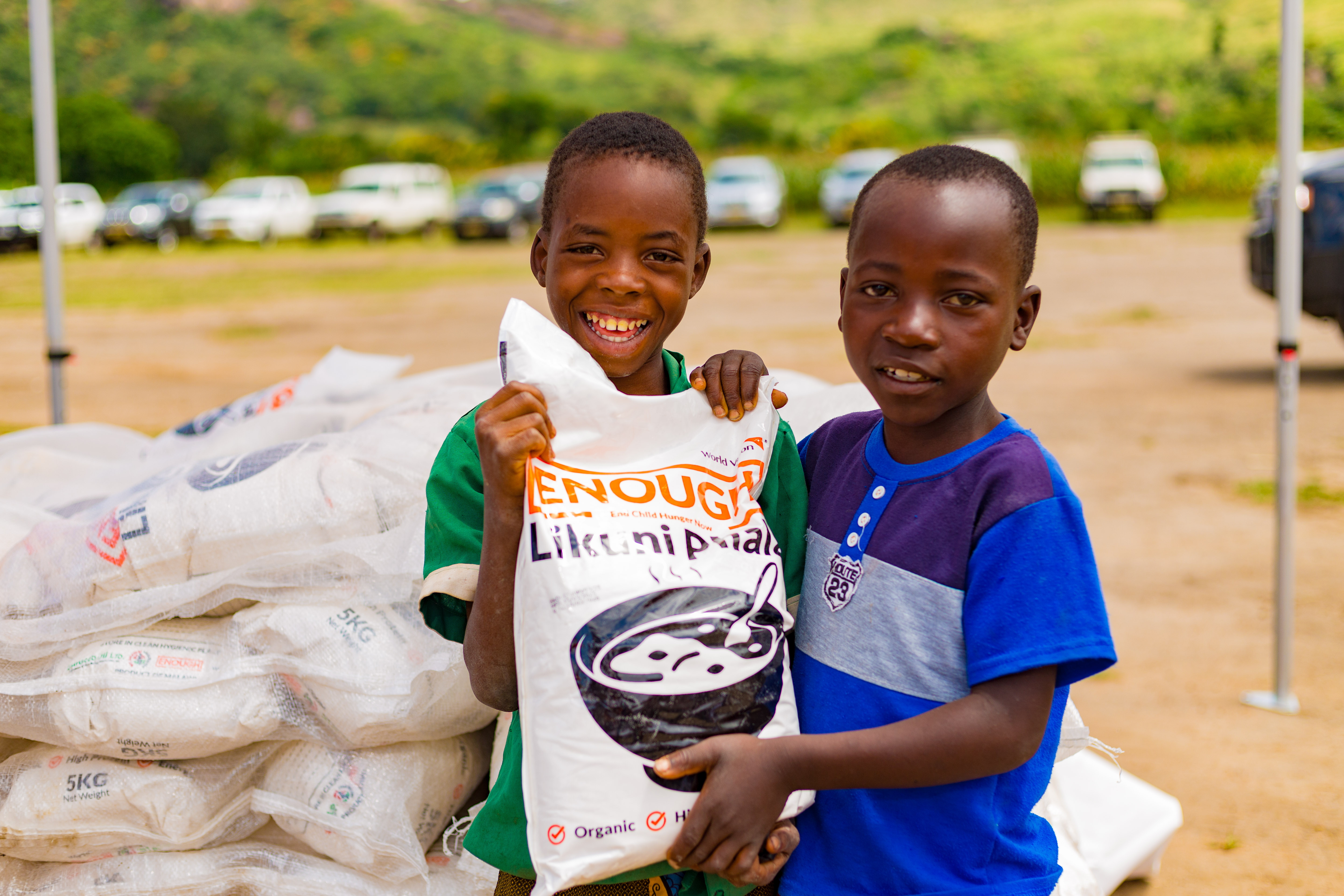World Vision Scales Up School Feeding Program in Malawi

Right now, more than 5.4 million people in Malawi are facing hunger, and children are suffering the most.
37% of children under five are stunted due to chronic malnutrition, meaning their bodies and brains are not growing to the optimum.
In 2024, World Vision Malawi introduced School Feeding pilot programme in Phalombe and Mulanje districts, targeting Community-Based Child-care Centres (CBCCs), and the results were amazing.
CBCC’s enrolment improved by 33% from five thousand children to over six thousand children. This means more children stayed in school, they learned better, and their health improved.
Based on this background, World Vision has scaled up the school feeding program to reach 1,260 (one thousand two hundred sixty) Early Childhood Development centers across our area programs in Malawi, reaching 60 thousand children aged 3-6.

The scale up event took place at Zalali Community ground in Lilongwe district. Minister of Gender, Community Development, and Welfare, Jean Sendeza.
Jean Sendeza commended World Vision for the intervention and asked the community members to own the initiative.
“World Vision has done a great job by introducing a school feeding program at a time when our country has been affected by drought. I urge you to welcome the initiative and take over it for sustainability. Don’t leave this to World Vision alone, you too can contribute with cooking materials and other utensils to support the intervention,” says Sendeza.
Sendeza also urged World Vision to dwell much on livelihood projects so that the community members can sustain the intervention even if World Vision transitions from the community.

World Vision’s National Director, Francis Dube says World Vision is running an Enough Campaign so as a child focused organization, as part of Enough Campaign, World Vision believes that a simple meal can change a child’s life, as it keeps them in school, helps them grow, and gives them hope for a better future.
Dube also emphasized on the importance of investing on little children in the country.
"A World Food Program report 2024 on school feeding programmes is showing that school meals programmes have a high return on investment, with every $1 spent on school meals yielding back at least $20 in education through human capital and local economy through local procurement and employment. Such investments in Early Childhood Development are therefore linked to with improved health and nutrition, higher cognitive development and better school achievement. Meaning that, a well-fed child today becomes a healthier and more productive adult tomorrow.” Says Francis.

World Vision continues advocating for more funding towards meals program. No child should have to learn on an empty stomach. We believe that if we join hands, we can end child hunger in Malawi.